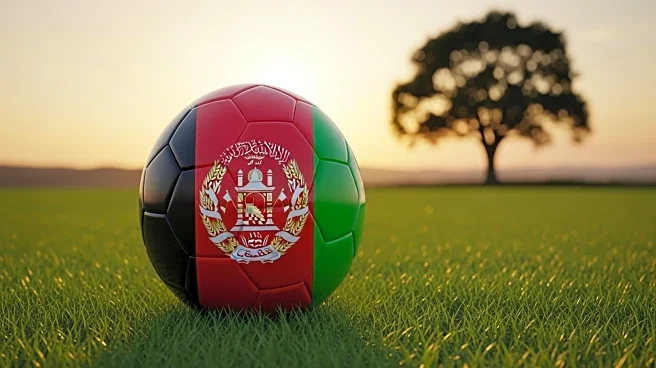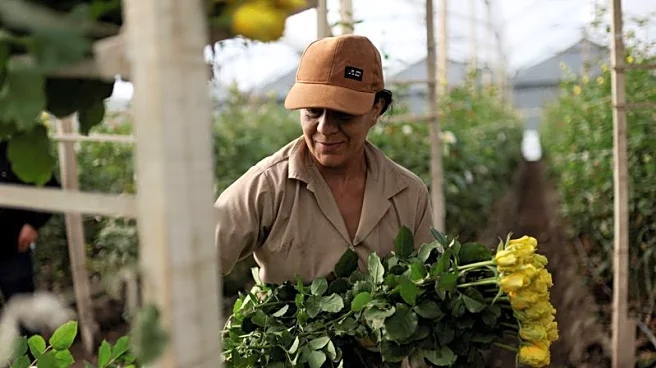What is the story about?
What's Happening?
The Afghan women's soccer team, unable to play since the Taliban's return to power in 2021, has received recognition from FIFA as a refugee squad. This unprecedented move comes after years of advocacy by the players, who have been exiled to the UK. The team has been fighting for recognition and the opportunity to continue playing the sport that serves as a lifeline for them. CNN's Amanda Davies met with several players to discuss their journey and the significance of FIFA's decision.
Why It's Important?
FIFA's recognition of the Afghan women's soccer team as a refugee squad is a significant step in supporting athletes who have been displaced due to political turmoil. This decision highlights the role of sports in providing hope and resilience for individuals facing adversity. It also underscores the importance of international organizations in advocating for human rights and gender equality. The recognition could inspire other sports bodies to support athletes in similar situations, promoting inclusivity and diversity in sports.
What's Next?
With FIFA's recognition, the Afghan women's soccer team may have new opportunities to participate in international competitions, raising awareness about their plight. The team could also receive support from other organizations and sponsors, helping them rebuild their careers. However, challenges remain, as the players continue to navigate life in exile and advocate for women's rights in Afghanistan. The team's journey may influence global discussions on the intersection of sports, politics, and human rights.
Beyond the Headlines
The recognition of the Afghan women's soccer team by FIFA highlights broader issues of gender equality and the impact of political instability on sports. It raises questions about the role of sports in promoting social change and the responsibilities of international organizations in supporting marginalized groups. The team's story may inspire other athletes to use their platforms for advocacy, contributing to a more inclusive and equitable sports environment.















